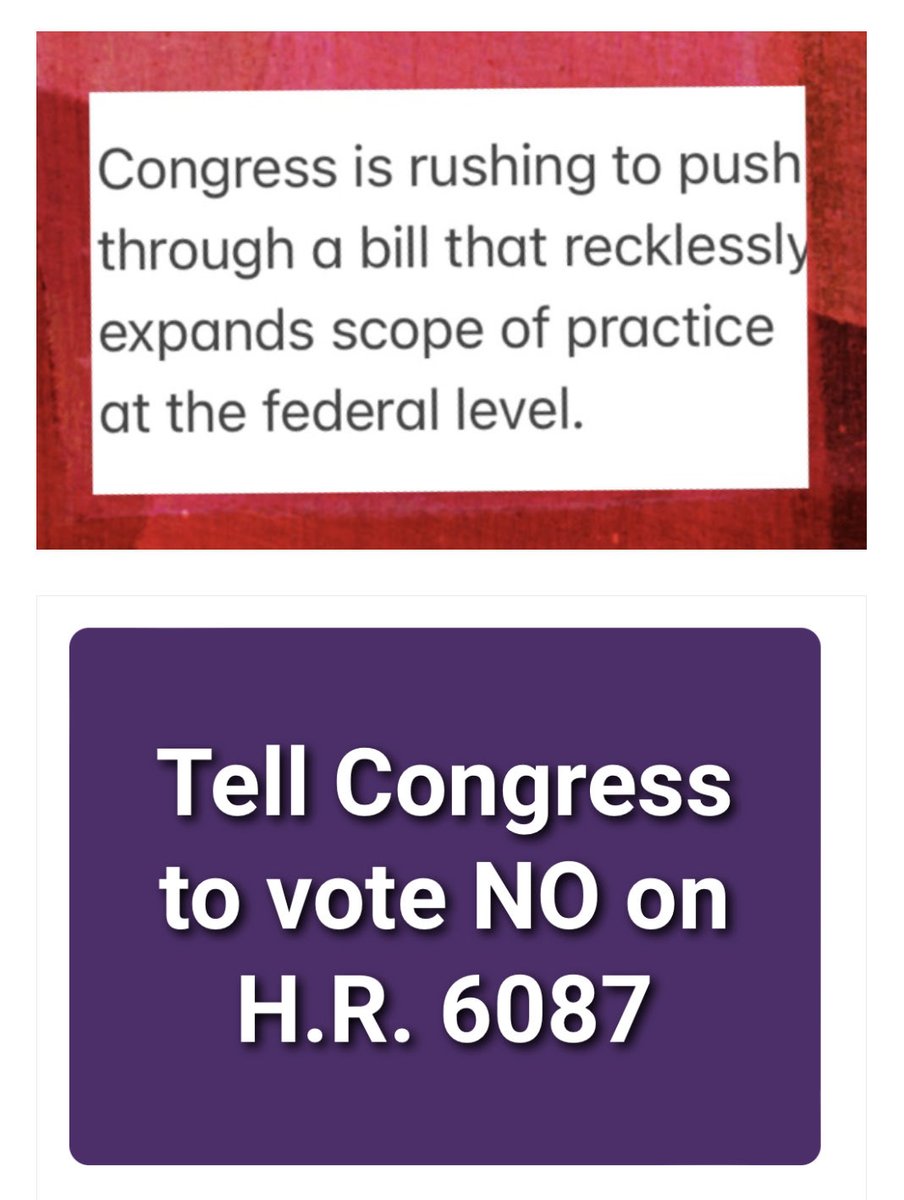
🎇#FixPriorAuth
🧵”The approval process health insurers impose on medical services or drugs is generating a toll that exceeds the purported benefits, according to a physician survey released today by @AmerMedicalAssn and shared in a letter to federal health officials.”
🧵”The approval process health insurers impose on medical services or drugs is generating a toll that exceeds the purported benefits, according to a physician survey released today by @AmerMedicalAssn and shared in a letter to federal health officials.”

2/ For an infographic of the survey results, please see👇
ama-assn.org/system/files/p…
For more from the @AmerMedicalAssn press release, please read on. #OurAMA

ama-assn.org/system/files/p…
For more from the @AmerMedicalAssn press release, please read on. #OurAMA


3/ “While health insurers claim prior authorization requirements are used for cost and quality control, a vast majority of physicians say authorization controls lead to unnecessary waste and avoidable patient harm.”
#FixPriorAuth
#FixPriorAuth
4/ “‘Health plans continue to inappropriately impose bureaucratic prior authorization policies that conflict with evidence-based clinical practices, waste vital resources, jeopardize quality care, and harm patients,’” said @AmerMedicalAssn President @JackResneckMD.
5/ “‘The byzantine system of authorization controls is rife with opportunities for reform and the AMA continues to work with federal & state officials on legislative solutions to reduce waste, improve efficiency, & protect patients from obstacles to medically necessary care.’”
6/ “According to the AMA survey, more than four in five physicians (8️⃣6️⃣%) reported that prior authorization requirements led to higher overall utilization of health care resources, resulting in unnecessary waste rather than cost-savings.”
7/ “[% physicians who reported resources were diverted due to prior authorization policies]
6️⃣4️⃣% to ineffective initial treatments
6️⃣2️⃣% to additional office visits
4️⃣6️⃣% of physicians reported prior authorization policies led to urgent or emergency care for patients.”
6️⃣4️⃣% to ineffective initial treatments
6️⃣2️⃣% to additional office visits
4️⃣6️⃣% of physicians reported prior authorization policies led to urgent or emergency care for patients.”
8/ 🔥“The health insurance industry maintains prior authorization criteria reflect evidence-based medicine, but physician experiences call into question the clinical validity of insurer-created criteria that lack transparency.”
9/ ❗️“Only 1️⃣5️⃣% of physicians reported that prior authorization criteria were often or always evidence-based.
❗️Other critical concerns highlighted in the AMA survey include:”
❗️Other critical concerns highlighted in the AMA survey include:”
10/ 🔥 “Patient Harm - 3️⃣3️⃣% of physicians reported that prior authorization led to a serious adverse event for a patient in their care, including hospitalization, permanent impairment, or death.” 

11/ 🔥”Bad Outcomes - Nearly nine in 10 physicians (8️⃣9️⃣%) reported that prior authorization had a negative impact on patient clinical outcomes.” 

12/ 🔥“Delayed Care - More than nine in 10 physicians (9️⃣4️⃣%) reported that prior authorization delayed access to necessary care.” 

13/ 🔥”Disrupted Care - Four in five physicians (8️⃣0️⃣%) said patients abandoned treatment due to authorization struggles with health insurers.” 

14/ 🔥”Lost Workforce Productivity - More than half of physicians (5️⃣8️⃣%) who cared for patients in the workforce reported that prior authorizations had impeded a patient’s job performance.” 

15/ “In addition, a significant majority of physicians (8️⃣8️⃣%) said burdens associated with prior authorization were high or extremely high.”
16/ ❗️“This costly administrative burden pulls resources from direct patient care as medical practices complete an average of 4️⃣5️⃣ prior authorizations per physician, per week, which consume the equivalent of almost 2️⃣ business days (1️⃣4️⃣ hours) of physician and staff time.” 

17/ “To keep up with the administrative burden, nearly two in five physicians (3️⃣5️⃣%) employed staff members to work exclusively on tasks associated with prior authorization.”
18/ “The AMA survey results illustrate a critical need to streamline or eliminate low-value prior authorization requirements to minimize waste, delays, and disruptions in care delivery.”
19/ “The AMA has taken a leading role in advocating for prior authorization reforms and today submitted comments to @CMSGov largely supporting the agency’s proposals to improve prior authorization.”
Read comments here 👉 tinyurl.com/y8u3p7ba
Read comments here 👉 tinyurl.com/y8u3p7ba

20/ “These [CMS] proposals align with the AMA’s 2017 Prior Authorization and Utilization Management Reform Principles.”
Read Principles here developed by a multi-stakeholder group including patients, physicians, & others 👉 tinyurl.com/2p9kmuku
Read Principles here developed by a multi-stakeholder group including patients, physicians, & others 👉 tinyurl.com/2p9kmuku

21/ These CMS proposals also align with “2018 Consensus Statement on Improving the Prior Authorization Process and will significantly improve prior authorization across a number of federal and state insurance programs.”
Read Consensus Statement here 👉 tinyurl.com/2p8uy75e
Read Consensus Statement here 👉 tinyurl.com/2p8uy75e

22/ "’The AMA greatly appreciates Administrator Brooks-LaSure’s reform proposal and its focus on the role of payer decision-making and electronic information exchange in the prior authorization process,’” said @JackResneckMD.
23/ “‘CMS has proposed two sets of rules on prior authorization, and as in comments on the initial rule, the AMA continues to applaud the administrator for acknowledging patient and physician concerns in both sets of proposed rules.’”
Read AMA letter 👉 tinyurl.com/yp6hyfdw
Read AMA letter 👉 tinyurl.com/yp6hyfdw
24/ “The AMA also provided the administrator with several recommendations to strengthen CMS’ proposals, particularly around the rule’s scope, payer transparency, and processing time requirements.”
25/ “The AMA continues to work on every front to streamline prior authorization.”
Read reform initiatives and resources, practice resources, research and reports from AMA 👉 ama-assn.org/practice-manag…
Read reform initiatives and resources, practice resources, research and reports from AMA 👉 ama-assn.org/practice-manag…
26/ Through the “Recovery Plan for America’s Physicians the AMA is working to right-size prior authorization programs so that physicians can focus on patients rather than paperwork.”
Read about the AMA Recovery Plan 👉 ama-assn.org/amaone/ama-rec…
Read about the AMA Recovery Plan 👉 ama-assn.org/amaone/ama-rec…

27/ “Patients, physicians, and employers can learn more about reform efforts and share personal experiences with prior authorization at FixPriorAuth.org.”
fixpriorauth.org
fixpriorauth.org

28/ To read the press release, Heavy Toll from Prior Authorization Exceeds Alleged Benefits, According to Physicians: ama-assn.org/press-center/p…
• • •
Missing some Tweet in this thread? You can try to
force a refresh

















